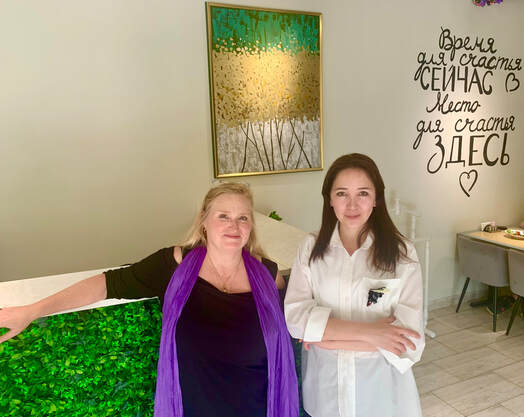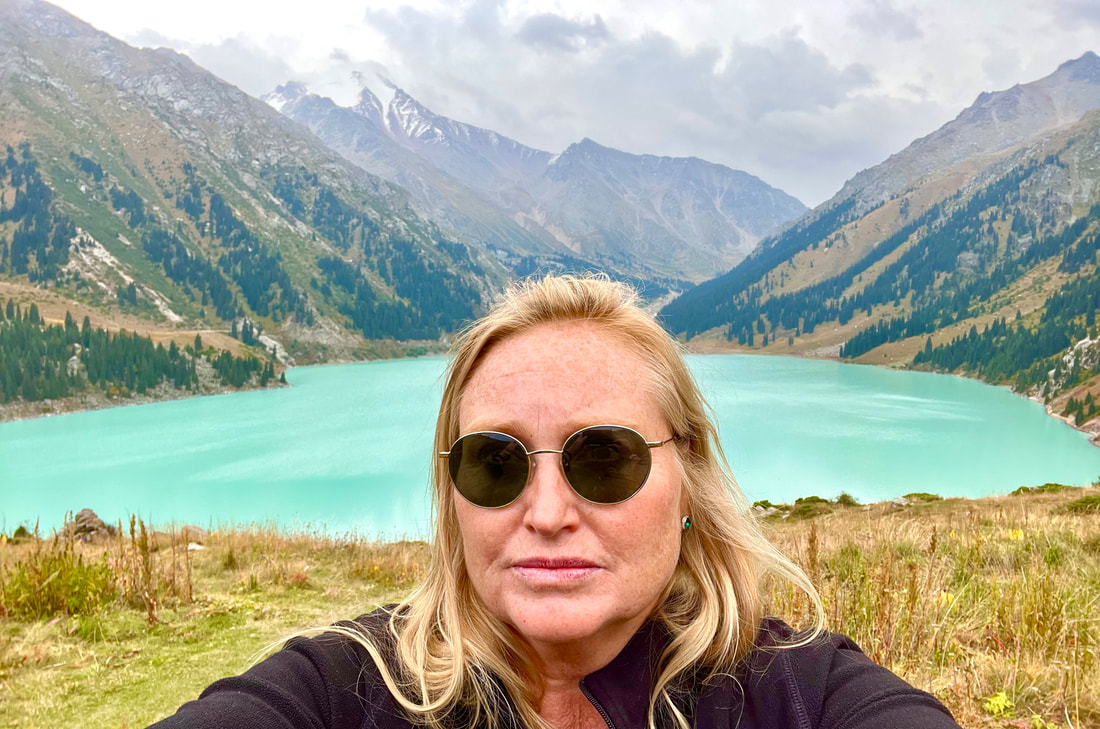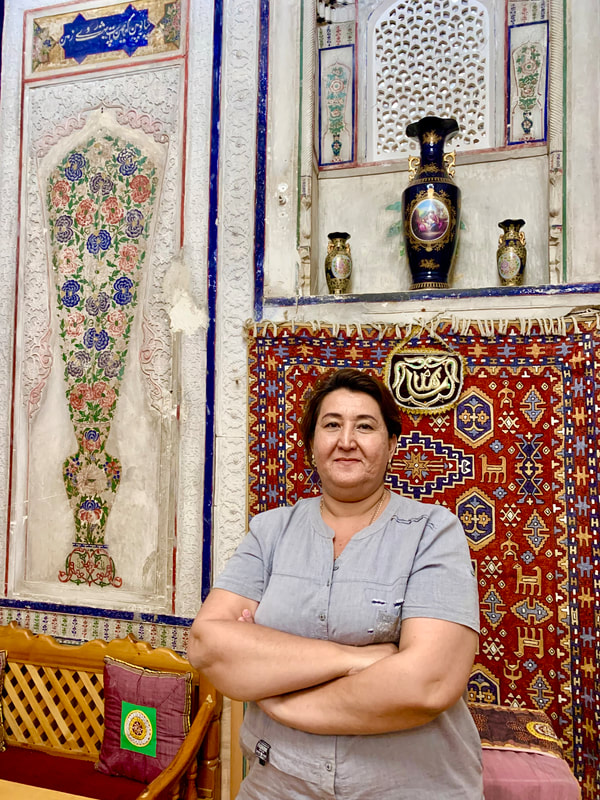|
Dilfuza Ibodova runs a news website in Bukhara.  I am in Bukhara, sitting on a rooftop overlooking an amazing city of turquoise and lapis-colored madrassas and mausoleums. The architecture along the ancient Silk Road in Uzbekistan is amazing. And so are the stories. I've now conducted 38 interviews in Uzbekistan since arriving six weeks ago. These are hours-long conversations in which journalists and bloggers and sometimes human rights advocates detail specific threats and intimidations they and others have experienced. Just last week in Tashkent, Anora Sodikova from Rost 24 (photo left) announced she had to delete a video and an article about an Uzbekistan businessman who appeared in the Panama Papers, the huge database showing owners of offshore accounts. A "very powerful person" contacted a colleague of hers and told him if Anora wanted a "quiet life" she'd have to take down the article and video she posted on her website. Fearing for her family, Anora took down the report. But when she refused to take down her Facebook post that said she was in danger, a "sniper blogger" started a smear campaign about her. Anora told me the identity of this "very powerful person" but because she fears he will follow through on his threats I cannot tell you. That's the way it is in Uzbekistan. Everyone knows, but no one can say out loud. Journalists and bloggers are also afraid in the regions. I interviewed several journalists last week in Samarkand. A few of them were defiant and said they didn't care if officials threatened them. Others hemmed and hawed about whether I could tell their story on the record—and in the end they said yes. I've started a growing list of the brave journalists I've met here. At the top of that list is Dilfuza Ibodova, who runs the media website tezkor-yangiliklar.uz/. I was connected to Dilfuza through Tashanov Abdurakhmon, President of Ezgulik, Uzbekistan's official human rights agency. Tashanov called Dilfuza "an active and brave blogger." I didn't know much about her when we first met. (Sometimes it's hard to find information in English on news sites in this country.) For our first interview, Dilfuza and I met at the famous Lyabi House next to the giant fountains in Bukhara this week. Dilfuza brought her teenage daughter as a translator. Her daughter is studying English at the university. The poor girl struggled to keep up with the complex conversation. Even professional translators have problems translating such detailed conversations. Soon all three of us were typing furiously on our phones on Google translate. What was confusing to me is that Dilfuza said the SSS (or SNB or DXX or KGB, there are so many acronyms for the state security services here) didn't contact her. No one ever told her what to write, and she wrote about corruption of officials all the time. Judicial corruption and crime was in fact just about all she wrote. We continued this back and forth for awhile. She said she didn't feel fear and she felt she could write about anything she wanted as long as she provided documentation, also known as "proofs" here. Finally I asked Dilfuza: "Why is it that all these other journalists and bloggers are having trouble with the SSS and you are not?" Then she typed on her phone and held up the translation to me: "They don't bother me because they killed my brother in 2015." Stay-tuned. I'll soon detail more about this brave woman's story and those of others like her. Comments are closed.
|
Fulbright in Central AsiaFrom March, 2022 to January of 2023, I was a Fulbright Scholar with the U.S. State Department in post-Soviet Central Asia. My previous Fulbright was in Ukraine. For the past six years, I have reported on journalists from post-Soviet countries who have experienced retaliation for reporting the truth. Archives
January 2023
|


 RSS Feed
RSS Feed
